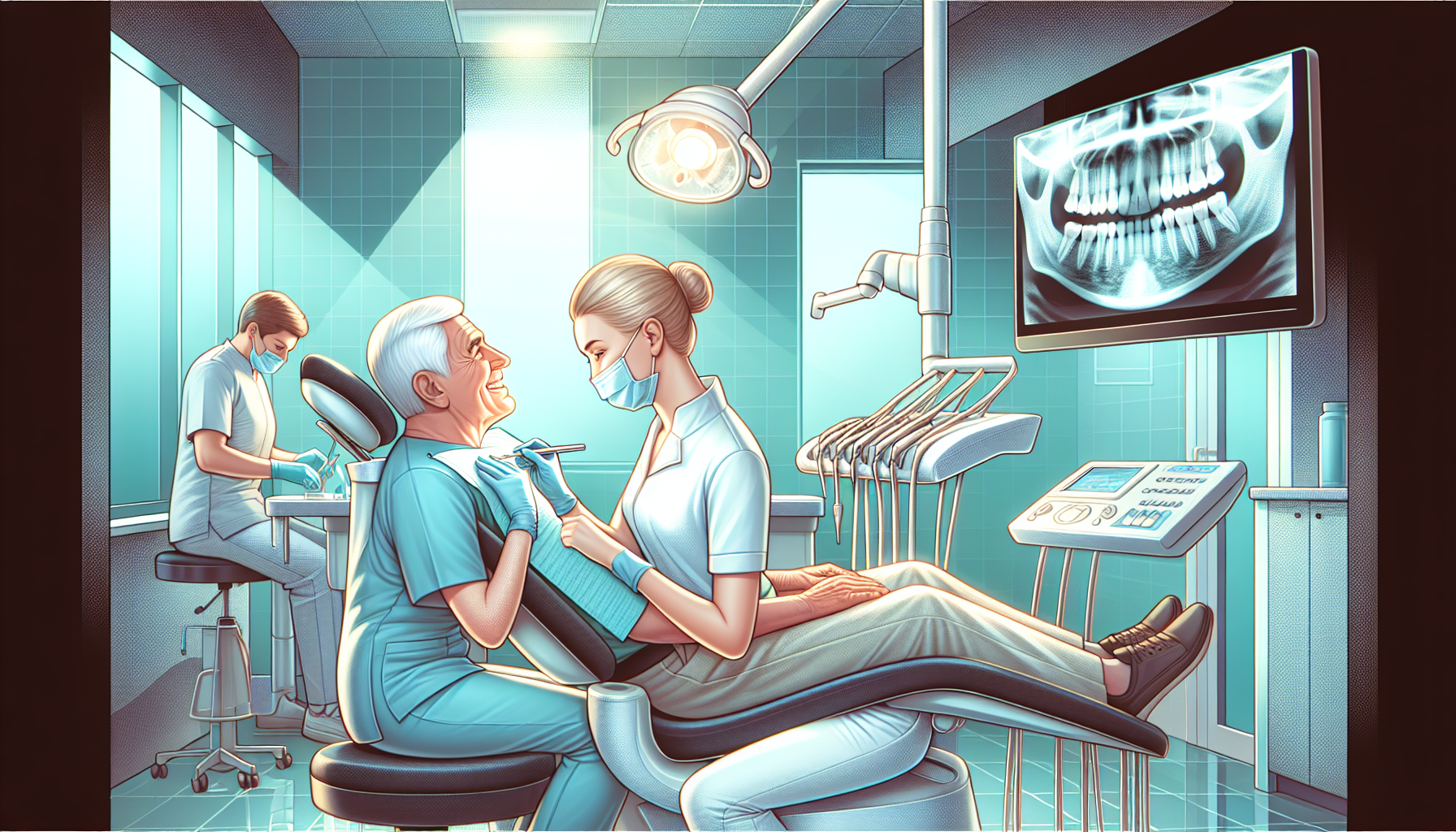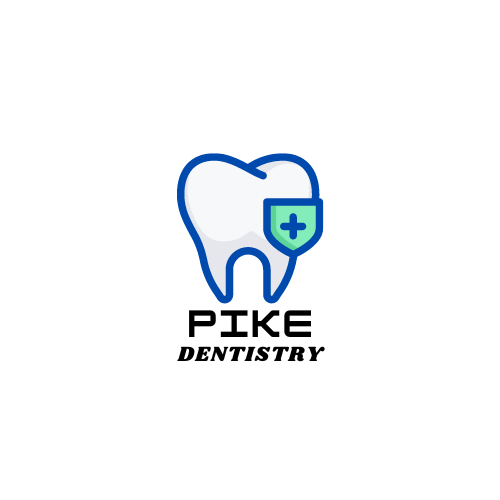Top Dental Insurance for Seniors: Finding the Best Plan for You
Navigating dental insurance for seniors can be daunting, but it’s essential for maintaining dental health and managing costs. This article will guide you through the best dental insurance options for seniors, explaining what they cover and how to choose the right plan for you.
- Dental insurance is essential for seniors, covering preventive, basic restorative, and major services to address aging-related dental issues and overall health risks.
- Seniors have various dental insurance options, including PPOs, DHMOs, discount dental plans, and direct reimbursement plans, each with distinct benefits and limitations.
- Medicare generally does not cover routine dental care, but some Medicare Advantage plans and supplemental dental insurance can provide comprehensive dental benefits for seniors.
Understanding Dental Insurance for Seniors

Understanding Dental Insurance for Seniors

Dental insurance plays a significant role in healthcare, particularly for seniors. Aging often necessitates more complex dental treatments due to various health issues, medication effects, and general health status, thus underscoring the importance of adequate dental care. Dental problems can increase with age, and without good dental care, these issues can lead to more serious health complications. Seniors frequently find themselves looking for dental plans that encompass major restorative care, given that oral health needs often extend beyond mere preventive care.
For many seniors, losing employer-provided dental insurance upon retirement can lead to increased out-of-pocket costs for dental care. Dental insurance covers emergencies and preventive care, but the coverage amount and workings differ from health insurance. Gaining insights into dental insurance coverage and the significance of dental health for seniors can guide you in making informed decisions about your dental care needs.
What Dental Insurance Covers
Dental insurance plans typically cover three main categories of procedures: preventive care, basic restorative care, and major services. Preventive care, which is often covered at 100%, includes regular check-ups and cleanings, exams, x-rays, and fluoride treatments for children. These routine dental care services are essential for maintaining dental health and catching issues early before they become more serious.
Basic restorative care includes procedures like fillings and teeth extractions, and in some plans, root canals and periodontal procedures. Major services, which are critical for seniors, typically cover dentures, dental implants, root canals, periodontal procedures, and denture/bridge repairs. Grasping the extent of dental insurance coverage is instrumental in contrasting different dental insurance plans and confirming that your unique dental needs are addressed.
Importance of Dental Health for Seniors
Dental health holds paramount importance for seniors owing to the heightened risk of dental problems, including gum disease and tooth loss. Tooth loss and dentures can affect nutrition intake, while gum disease increases the risk of stroke, heart attack, and diabetes, and is linked with dementia. Regular dental care can help mitigate these risks and support overall health and well-being.
Dentists also play a crucial role in the early detection of oral cancer, which is more common in older adults. Adequate dental care, encompassing regular check-ups and cleanings, is pivotal for early detection and treatment of dental issues. This not only improves dental health but also contributes to overall health, making dental insurance a vital part of senior healthcare.
Types of Dental Insurance Plans Available
Seniors can avail themselves of an array of dental insurance plans, each providing distinct benefits and coverage alternatives. Comprehending these options is imperative for identifying a plan that caters to your needs. The main types of dental insurance plans include:
- Preferred Provider Organizations (PPOs)
- Dental Health Maintenance Organizations (DHMOs)
- Discount Dental Plans
- Direct Reimbursement Plans
Each type has its own advantages and considerations, which we’ll explore in the following sections.
Preferred Provider Organizations (PPOs)
Preferred Provider Organization (PPO) plans offer flexibility by featuring a network of dentists who have agreed to provide their services for a set fee. This means that seeing in-network dentists can save you money, as these dentists charge reduced fees. However, PPO plans also allow for out-of-network care, though at a higher cost, giving you the freedom to choose your preferred dentist.
PPO plans typically reimburse a higher percentage of the cost when using in-network providers, making them a cost-effective option for many seniors. For example, Anthem’s Essential Choice PPO Platinum plan offers high annual coverage limits and equal benefits for both in-network and out-of-network care. This flexibility is a significant advantage, especially for those who value having options in their dental care.
Dental Health Maintenance Organizations (DHMOs)
Dental Health Maintenance Organizations (DHMOs) generally have lower premiums compared to PPO plans but require patients to use a network of designated providers. This means that you must choose a primary dentist within the network, and referrals are needed to see specialists. Patients in a DHMO plan usually pay fixed co-pays instead of a percentage of the dentist’s fees, which can simplify the cost structure.
DHMOs pay in-network dentists a set fee per patient per month, and the dentists provide services to patients at low or no cost. This arrangement can be beneficial for seniors looking to minimize their out-of-pocket expenses, but it does come with the trade-off of less flexibility in choosing providers.
Discount Dental Plans
Discount dental plans provide lower rates for services at participating dentists but are not considered traditional insurance. These plans involve contracting with dentists to reduce their fees, allowing patients to pay the dentists directly at the discounted rate without filing any insurance claims.
This can be a cost-effective option for seniors who need regular dental care but do not want to commit to a full insurance plan.
Direct Reimbursement Plans
Direct Reimbursement (DR) plans offer flexibility by allowing seniors to choose any dentist and get reimbursed for a percentage of the costs incurred. These plans do not have network restrictions, which means you can visit any dentist you prefer. You pay for the services out-of-pocket and then submit a claim to be reimbursed according to the plan’s specific rules.
This type of dental plan can be particularly appealing for those who prioritize choice and flexibility in their dental care.
How Medicare Relates to Dental Insurance
Medicare’s relationship with dental insurance can be complex. Here are some key points to keep in mind:
- Original Medicare (Part A and B) generally does not cover routine dental care like cleanings, fillings, or dentures.
- Medicare will cover dental services that are essential for the clinical success of another covered medical service, such as jaw surgery related to cancer treatments.
- Some Medicare Advantage plans (Part C) may offer dental coverage as an additional benefit.
- Stand-alone dental insurance plans are available for purchase to supplement Medicare coverage.
It’s important to review your specific Medicare plan and any additional dental coverage options to understand what is covered and what is not.
Medicare Advantage HMO plans, which are a type of Medicare Advantage Plan, often offer more comprehensive dental coverage, making them a viable option for seniors seeking dental benefits.
Does Medicare Cover Dental Work?
Original Medicare generally does not cover routine dental care, which includes:
- cleanings
- fillings
- tooth extractions
- dentures
However, there are specific situations where Medicare will cover dental services. For instance, dental care is covered if it is necessary for the treatment of another medical condition, such as dental procedures required for jaw surgery due to a cancerous tumor. Additionally, Medicare covers dental care in inpatient settings if hospitalization is required due to an underlying medical condition or the severity of the dental procedure.
Recent rule changes have expanded Medicare coverage to include dental services necessary for the clinical success of other medical procedures, such as organ transplants and cardiac valve replacements. These changes are significant for seniors who may need comprehensive medical and dental care, providing a more integrated approach to their overall health.
Medicare Supplement Plans and Dental Coverage
Medicare Supplement (Medigap) plans typically do not cover dental services, which means seniors need to look for alternative options for dental coverage. Some insurers offer separate dental riders for Medigap plans, providing additional coverage for dental care.
These supplemental options can be beneficial for seniors looking to cover dental implants or other major dental procedures, ensuring they have comprehensive health insurance coverage.
Choosing the Right Dental Insurance Plan
Selecting the appropriate dental insurance plan entails:
- Assessing your personal dental health needs and financial limitations
- Contemplating plans that wholly encompass preventive care without waiting periods, guaranteeing prompt access to requisite services
- Checking if your preferred dentists are included in the network, which can save you both time and money.
Evaluating Coverage Needs
When evaluating coverage needs, seniors should focus on plans that cover major dental services at reasonable percentages, such as 50% or 60% for procedures like crowns. It’s also important to assess the need for major services like implants and dentures, which can be costly. Understanding the coverage for procedures commonly needed and ensuring the quality of care matches the marketing can help in choosing the right plan.
Preventive care is another critical factor to consider. Taking advantage of preventive services covered by your insurance can help avoid more costly procedures in the future. Regular dental visits and early detection of issues can significantly reduce the need for extensive and expensive treatments later on.
Comparing Costs and Benefits
When comparing dental plans, it’s crucial to evaluate premiums, deductibles, and maximum annual benefits to find the best value. Look beyond the monthly premiums and consider the out-of-pocket costs, such as deductibles and copayments, as well as waiting periods for preventive and major services.
This comprehensive approach will help you save money and ensure you get the dental benefits you need without unexpected expenses.
Costs Associated with Senior Dental Insurance
Comprehending the expenses linked to senior dental insurance is crucial for effective budgeting and planning. These costs include:
- Monthly premiums
- Deductibles
- Copayments
- Annual limits
By being aware of these expenses, seniors can choose a plan that fits their financial situation while ensuring they receive necessary dental care.
Monthly Premiums
Monthly premiums for senior dental plans typically range from approximately $28 to $60. This cost can vary depending on the level of coverage and the specific plan chosen. It’s important to balance the cost of premiums with the benefits offered to ensure you’re getting the best value for your money.
Deductibles and Copayments
Deductibles for senior dental plans are typically around $50 annually. Copayments and coinsurance can also be significant, with some plans requiring seniors to pay 40% or more for certain services. It’s crucial to understand these out-of-pocket costs when selecting a dental insurance plan to avoid unexpected expenses.
Annual Limits and Out-of-Pocket Maximums
Dental insurance plans have annual limits, typically ranging from $1,000 to $3,000 per year. For instance, MetLife provides a plan with an annual limit of $1,500, while Delta Dental offers an annual coverage limit of $2,000 for most care services. Once the annual maximum benefit cap is reached, seniors must pay 100% of any additional dental costs for the remainder of the year, making it essential to choose a plan with a suitable annual limit to cover anticipated dental care expenses.
Top Dental Insurance Companies for Seniors
Selecting the appropriate dental insurance company is critical to guarantee comprehensive and satisfactory dental care. After reviewing market data, public sentiment, and customer complaints data from the National Association of Insurance Commissioners (NAIC), we have identified the best dental insurance companies for seniors. These include:
- Delta Dental
- MetLife
- Physicians Mutual
- Spirit Dental
Each providing unique benefits tailored to senior dental needs.
Delta Dental
Delta Dental is highly recommended for seniors needing major care due to its comprehensive coverage and high customer satisfaction, indicated by a low complaint index with the NAIC. The Premium PPO plan offers:
- 100% coverage for preventive care
- 80% coverage for basic care after a $50 deductible
- 50% coverage for major services such as periodontics, implants, and dentures
- Up to an annual maximum of $2,000
Additionally, Delta Dental provides various perks in some states, including discounts on dental care products and services.
MetLife
MetLife offers a range of dental insurance plans tailored to seniors, ensuring coverage for preventive, basic, and major dental work. Known for its affordability, MetLife helps seniors manage their dental care expenses effectively. The plans provide extensive benefits and easy access to a large network of dentists, making it a convenient and cost-effective choice for many seniors.
Physicians Mutual
Physicians Mutual stands out by offering dental plans with no annual cap on benefits and a $0 deductible. The Premier Plan covers 70% of both basic and major dental care services, providing significant savings on dental procedures.
This unlimited annual benefit can be particularly beneficial for seniors who require extensive dental work throughout the year.
Spirit Dental
Spirit Dental is notable for its no waiting periods and low premiums, allowing immediate access to both basic and major care. The Senior Preferred PPO plan provides coverage for three yearly cleanings, two exams, and one series of X-rays, all of which are covered at 100%. Additionally, it covers 50% of the costs for fillings and major care up to a high annual maximum of $3,000, making it an excellent choice for comprehensive dental coverage.
Dental Procedures and Their Costs
Selecting the appropriate dental insurance company is critical to guarantee comprehensive and satisfactory dental care. After reviewing market data, public sentiment, and customer complaints data from the National Association of Insurance Commissioners (NAIC), we have identified the best dental insurance companies for seniors. These include:
- Delta Dental
- MetLife
- Physicians Mutual
- Spirit Dental
Each providing unique benefits tailored to senior dental needs.
Delta Dental
Delta Dental is highly recommended for seniors needing major care due to its comprehensive coverage and high customer satisfaction, indicated by a low complaint index with the NAIC. The Premium PPO plan offers:
- 100% coverage for preventive care
- 80% coverage for basic care after a $50 deductible
- 50% coverage for major services such as periodontics, implants, and dentures
- Up to an annual maximum of $2,000
Additionally, Delta Dental provides various perks in some states, including discounts on dental care products and services.
MetLife
MetLife offers a range of dental insurance plans tailored to seniors, ensuring coverage for preventive, basic, and major dental work. Known for its affordability, MetLife helps seniors manage their dental care expenses effectively. The plans provide extensive benefits and easy access to a large network of dentists, making it a convenient and cost-effective choice for many seniors.
Physicians Mutual
Physicians Mutual stands out by offering dental plans with no annual cap on benefits and a $0 deductible. The Premier Plan covers 70% of both basic and major dental care services, providing significant savings on dental procedures.
This unlimited annual benefit can be particularly beneficial for seniors who require extensive dental work throughout the year.
Spirit Dental
Spirit Dental is notable for its no waiting periods and low premiums, allowing immediate access to both basic and major care. The Senior Preferred PPO plan provides coverage for three yearly cleanings, two exams, and one series of X-rays, all of which are covered at 100%. Additionally, it covers 50% of the costs for fillings and major care up to a high annual maximum of $3,000, making it an excellent choice for comprehensive dental coverage.
Dental Procedures and Their Costs

Grasping the expenses tied to dental procedures is vital for effective budgeting and choosing the appropriate insurance plan. Dental procedures can range from routine care, such as cleanings and exams, to major services like crowns and implants. Knowing these costs can help you choose the best dental insurance plan to meet your needs.
Routine Dental Care
Routine dental care includes regular cleanings, exams, and X-rays, which are essential for maintaining dental health. On average, a dental cleaning costs about $98, a dental exam costs between $55 to $87, and dental X-rays range from $48 to $101. These costs add up, making dental insurance that covers routine care a valuable investment for seniors.
Major Dental Services
Major dental services, such as crowns, dentures, and implants, can be quite costly. For instance, the average national cost for a cavity filling is $146 to $174, while tooth extractions typically cost between $135 to $500. Dental implants, which are often necessary for tooth replacement, cost about $2,000, with additional costs of $1,500 for the abutment and crown. These high costs highlight the importance of having dental insurance that provides substantial coverage for major services.
How to Maximize Your Dental Insurance Benefits
To maximize your dental insurance benefits, it’s important to understand your policy details, stick to in-network providers, and schedule routine preventive care. By being proactive and informed, you can ensure you get the most out of your dental insurance plan and maintain optimal dental health.
Staying In-Network
Using in-network providers is one of the best ways to maximize your dental insurance benefits. In-network dentists agree to lower fee schedules, which can significantly reduce your out-of-pocket costs. Additionally, insurance companies typically cover a higher percentage of the costs for services provided by in-network dentists, making it a cost-effective choice.
Scheduling Preventive Care
Scheduling regular preventive care, such as cleanings and exams, is crucial for maintaining dental health and avoiding costly treatments in the future. Preventive care helps detect issues early, reducing the need for more extensive treatment later on.
By staying on top of your routine dental care, you can prevent more serious problems and make the most of your dental insurance coverage.
In conclusion, finding the right dental insurance plan for seniors involves understanding the types of plans available, evaluating coverage needs, and comparing costs and benefits. By choosing a plan that fits your individual needs and budget, you can ensure you receive the necessary dental care without unexpected expenses. Remember to maximize your benefits by staying in-network and scheduling regular preventive care. With the right dental insurance, you can maintain your dental health and overall well-being.
Frequently Asked Questions
Does Medicare cover routine dental care for seniors?
No, Original Medicare does not cover routine dental care for seniors, but Medicare Advantage plans may provide more extensive dental coverage.
What types of dental procedures are typically covered by dental insurance plans?
Dental insurance plans typically cover preventive care, basic restorative care, and major services, such as cleanings, exams, fillings, extractions, dentures, and implants. This can vary by plan and provider.
How can seniors maximize their dental insurance benefits?
Seniors can maximize their dental insurance benefits by understanding their policy details, staying in-network, and scheduling regular preventive care to detect issues early and avoid costly treatments. This can help them make the most of their coverage and maintain good oral health.
What are the costs associated with senior dental insurance?
The costs associated with senior dental insurance include monthly premiums, deductibles, copayments, and annual limits. Monthly premiums generally range from $28 to $60.
Which dental insurance companies are recommended for seniors?
For seniors, Delta Dental, MetLife, Physicians Mutual, and Spirit Dental are recommended dental insurance companies due to their tailored benefits for senior dental needs.
